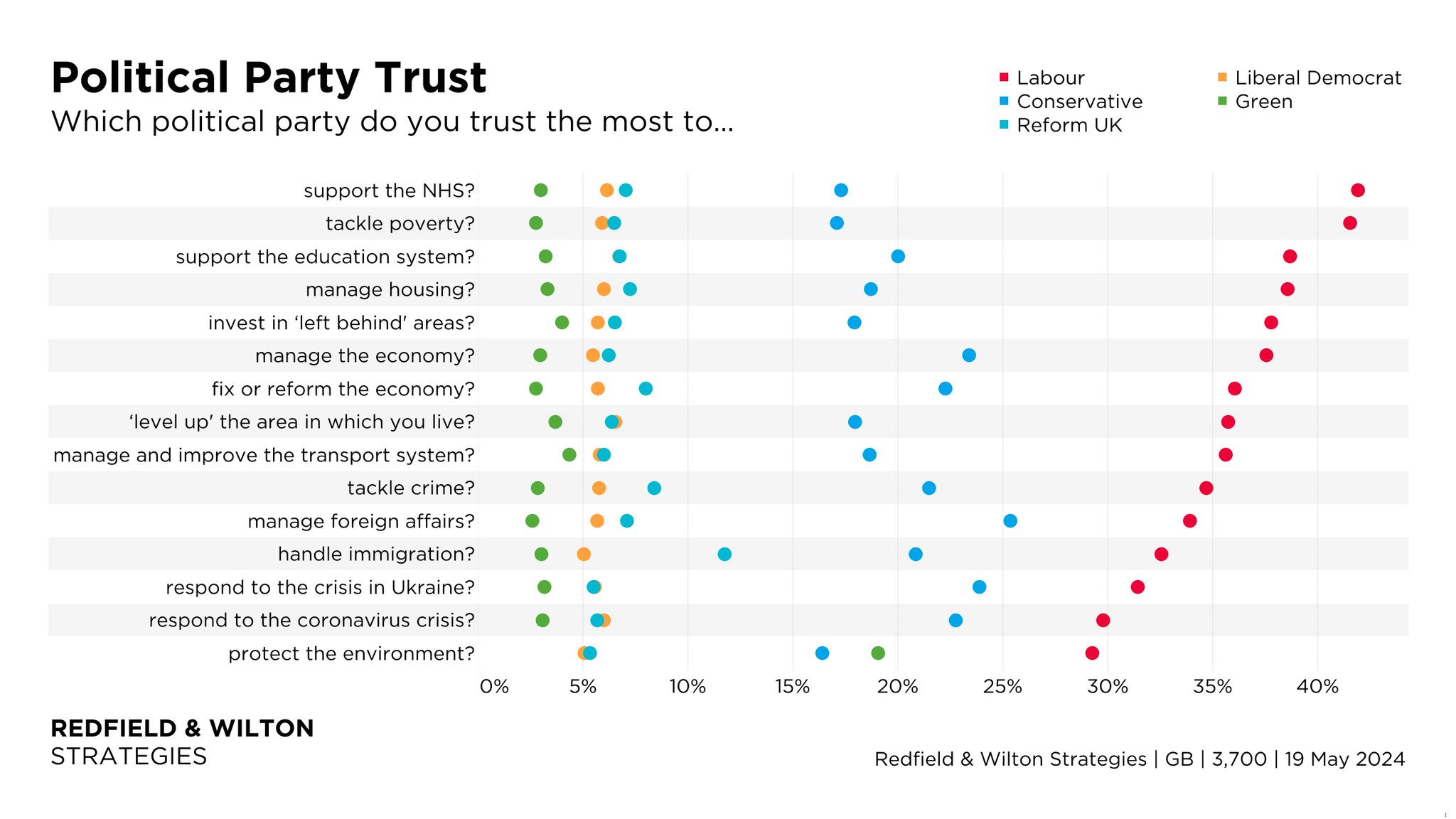Very much agree with all these points. I also don't think it's that useful to be spamming this community with polls as they come out. But thought this was a helpful bit of information to see where things roughly stand at the beginning of campaign time.
Weirdest set of things in the prize task for quite a while, I loved it.
One of the points made quite astutely in the FT comments section mentioned that ofwat was also strongly responsible for this.
Apparently the regulatory model is set up in the following way - in order to encourage investment in infrastructure, the calculated amount that customers are charged is based on a ratio of how much money is invested into infrastructure. Supposedly Thames Water and other water companies in England wanted to invest more in infrastructure, however ofwat did not allow it as they wanted to protect customers from price increases. Furthermore because of the silly shell game of holding companies that were set up to move the debt around, ofwat didn't understand just how much debt was being racked up and didn't make any moves to stop it.
However what this all shows is that the regulatory model is absolutely broken. So not only is ofwat toothless in allowing a ridiculous corporate structure to be set up to obfuscate the silly financial leveraging going on, they are also operating on an entirely faulty premise.
What it all shows is that trying to set up a functional privatised system for water companies that incentivises investment and works for citizens is extremely difficult, is prone to regulatory capture, is still under pressure from meddling ministers and ultimately costs more for customers and the government than servicing the government debt that would be used to pay for investment under a nationalised system.
Just bloody nationalised it.
Counterstrike 1.6/Source/GO/2
Started playing around 2005. Playtime has waxed and waned over the years in my friend group, but we've generally played it fairly regularly for nearly 20 years now.
If they were dead set on doing a tax cut (unfortunately for the good of the country) at least they made it an NI cut rather than an income tax cut.
I can see a way forward for labour if they want to raise more money without straight up reversing these cuts by abolishing NI (or gradually reducing it to phase it out) and correspondingly increasing income and/or capital gains tax.
They can chalk it up as making the tax system fairer by removing the tax on which employees pay more than self employed or those with passive wealth-based income. Simultaneously they can say they are building on the one positive outcome of the previous budget.
The numbers quoted indicate much more of a sea change has occurred than I would have expected.
in the 1960s around an eighth of British voters switched their choice between elections. By the 1980s it was a fifth. At the last election Professor Edward Fieldhouse, a political scientist at the University of Manchester, and his colleagues concluded that most of the electorate were swing voters. Politicians see it on the doorstep. “In 1997 around 40% of voters were up for grabs but today it is probably around 70%,” says Jonathan Reynolds, Labour’s shadow business secretary and an MP in the north-west.
Maybe there's hope for PR within the next 20 years.
Mr Robot, you missed an important sentence:
Abolishing the non-dom tax regime would raise an estimated £3.6bn a year.
I'm a big fan of middle class ideals. Just have a look on Google maps, there's more around than you might expect.
See if you have a local pottery near you that could make a new lid to fit.
They're really descending into the pits of weird fringe politics - like the sort of stuff you'd see from pre-Farage UKIP.
It also seems to be the opposite strategy to Johnson, who was essentially the bullshitting yes man that wanted great, wonderful, positive things for everyone but with no plan on how to achieve it. Instead of grand visions of new (unfeasable) infrastructure projects based on (non existent) future technology that the government will help develop, and impressive sounding targets (with no execution plan) to "make Britain world beating", we now have policies seeking to actively block and slow development of anything new. Johnson was popular because he was promising progress and great things to everyone. Sunak is now attempting to do the polar opposite of what Johnson used to achieve electoral success, presumably because he's aiming for the opposite of electoral success???
I can imagine a hacky way to anonymise voting would be to have a pool of fake user accounts on your instance. When someone on the instance clicks to up/downvote, a random fake account is used to make the vote instead. This would then kind of work like a vote tumbler and keep the voting anonymous but still work with activity pub.
Maybe activitypub is actually a bit crap and we should all be using something better like nostr though?

Bill Stickers is innocent!